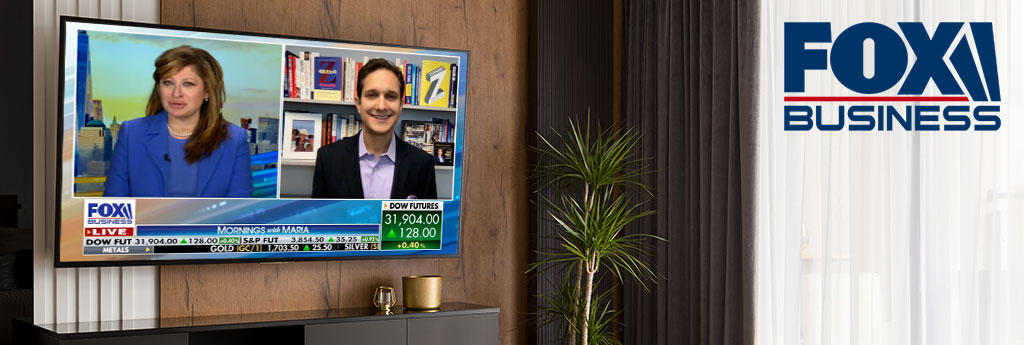
CGK President and Generations Expert Jason Dorsey was invited to be on national TV to help business leaders understand the next wave of consumers who can unlock growth and innovation—now and for decades to come: Gen Z. In the live TV interview, Jason shared how Gen Z is very different than previous generations and that the image many people have of Gen Z is not accurate.
Here are a few of CGK’s research findings Jason shared:
- 69% of Gen Z think saving for retirement should be a priority
- 38% of Gen Z have opened an online savings or investment account since the pandemic started
- 49% of older Gen Z, ages 18 to 24, plan to make a major purchase in the next two years
He also shared our research discovery—which we’ve been tracking for five years at CGK—that the Great Recession significantly impacted Gen Z’s view of money. The result is that Gen Z is much more practical with their money, including spending, saving, donating, and investing. This is particularly surprising given their current life stage.
Two more insights Jason shared:
- Gen Z is very focused on social causes and businesses supporting social causes that matter to the generation.
- In our research, we uncovered that the most important social cause for Gen Z right now is social justice, and the second most important is combatting climate change.
One area that is particularly important that Jason mentioned in the TV interview is our discovery that tech adoption and trend adoption is now being driven from the youngest generations up to the oldest generations.
This new trend-driving reality means if business leaders don’t accurately understand and adapt to Gen Z now, they risk not only missing this massive generation of consumers, but putting their business at risk of losing older generations who are increasingly adopting Gen Z’s approach to communicating, shopping, and buying. When we teach business leaders how to adapt to win Gen Z in our custom speeches and consulting, it positions the leaders to not only attract and retain this important, diverse, growing generation, but also positions them to keep every other generation of customer, too!
Jason also shared CGK’s research discovery that Gen Z in the U.S. do not remember 9/11. This was based on research CGK led several years ago that determined 9/11 was the Generation Defining Moment for Millennials–and an event that has always been history to Gen Z.
The discovery and clarification of this generation-defining moment means that 9/11 is not a contemporary event for Gen Z, but something they learned about from their parents, older siblings, teachers, or online. As generational experts and researchers, this was a critical discovery because it allowed us to determine the ending birth year for Millennials and starting birth year for Gen Z.
In addition, Gen Z does not remember a time before the smartphone or iPhone. Coming of age with phones constantly connected to the web made the experiences of communicating, dating, banking, learning, shopping, and being entertained via their smartphone “normal” and expected. For Gen Z, a smartphone is simply the phone they’ve always used—even if they borrowed it from their parents!
For business leaders, marketers, sales professionals, and innovators, Jason shared in the interview that to win Gen Z today, you have to go to where they are now, which includes social media platforms that may be uncomfortable or a steep learning curve for many businesses. These range from newer platforms like TikTok as well as more established Gen Z social media outlets such as YouTube, Snapchat, or Instagram.
As Jason shared, creating a strong, trusted emotional connection with Gen Z starts with supporting social causes that align with Gen Z’s values, advocacy, and priorities. While these social causes can vary for each business, the key is to find the one or two causes that align with both the business and Gen Z. Then, show how you are actively working toward this cause—which means more than just making a donation—but rather volunteering, embracing the cause across your workforce, and potentially even supporting legislative or regulatory changes.
In addition, the way businesses communicate with Gen Z is key. What works best when communicating with Gen Z? Our research shows that video is how Gen Z wants to engage—and they want to see people who look, talk, and view the world in the way they do. You can read many more of our Gen Z research insights in our annual State of Gen Z® study reports, which are available for free here.
What worked for business, marketing, employment, and sales leaders only three years ago does not work with Gen Z now
Leaders who invest in accurately understanding this important generation, going beyond the headlines and into the Gen Z research, will have a huge advantage in unlocking Gen Z’s potential now and for decades to come. A great place to start? Check out our new bestselling book about Gen Z, Zconomy: How Gen Z Will Change the Future of Business and What to Do About It. The book is packed with unexpected Gen Z insights, stories, research, and dozens of practical actions leaders can take right away to engage Gen Z at this critical time in their emergence as adults, consumers, employees, and trendsetters.
